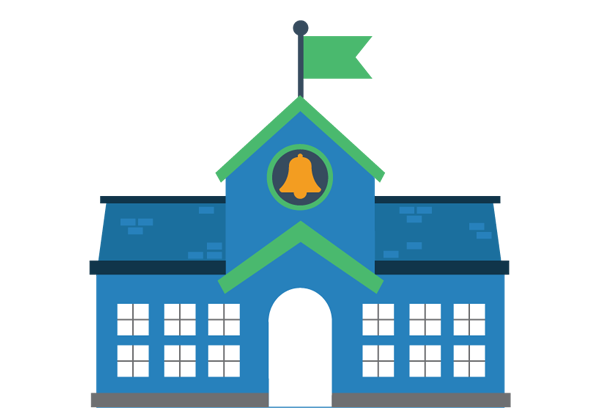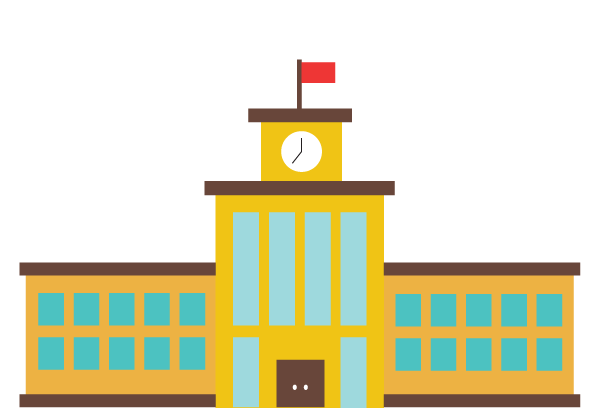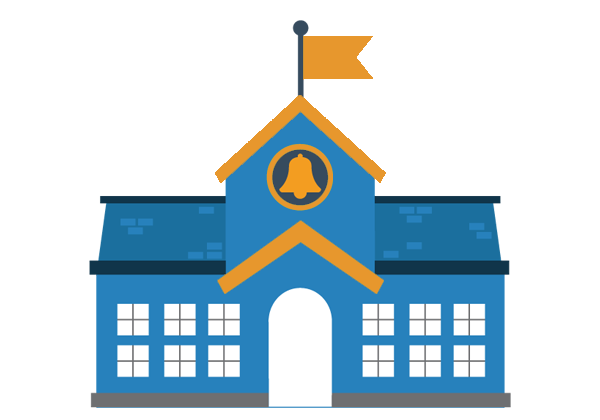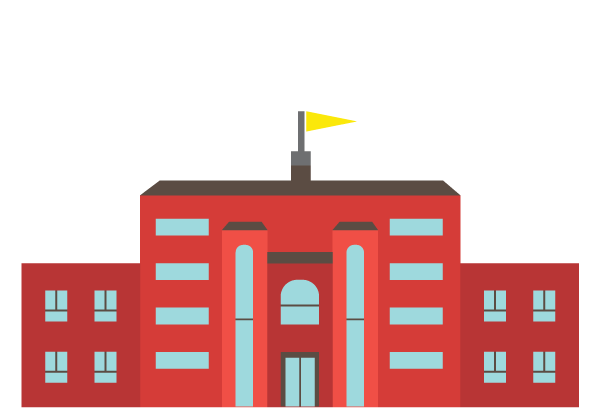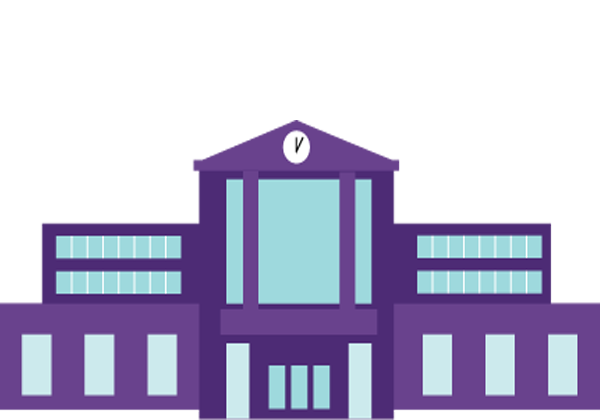Memphis is full of educational options – of all types. Start narrowing down your list here on Memphis School Guide. Click “Save as a Favorite” from any school’s profile and we’ll update you any time there’s news on that school. Once you have a short list, make plans to pay a visit to your favorites, keeping in mind the quality and fit factors you’re looking for.
What are my choices?

You've got options.
Public Traditional
All students in Shelby County are zoned to a neighborhood public school and have a right to a seat in that school. But you can also choose another traditional public school if it seems like a better fit (and the school has space). There are no academic entrance requirements for traditional public schools. All public schools are tuition-free and follow state-established guidelines for standards, safety and evaluation. All public schools in Shelby County used to fall into one of two school districts, but as of 2014, there are now eight school districts.
- We recommend starting your search with your neighborhood school, regardless of what you might have heard about it from friends or neighbors. Even if you don’t end up choosing it, you’ll at least have made your own informed opinion and have a good comparison as you continue your search.
- Even traditional public schools in the same district can be very different one from another, based on school leadership, the teaching staff, and the level of parent and community support. So if your neighborhood school is not a good fit, another might be.
Public Optional
Optional Schools are all part of the Shelby County Schools district, and may offer a themed education, similar to “magnet” schools in other cities. Read our full Guide to SCS Optional Schools for the full scoop, but here are two important things to know about Optional schools:
- In some Optional Schools, all classes are considered Optional, meaning that all students at the school must meet Optional entrance requirements. Other Optional schools operate as a “school within a school,” featuring some Optional and some traditional classrooms in each grade level. Find out which schools fall into each Optional category here.
- And speaking of entrance requirements…not all Optional schools have the same ones. If your child doesn’t qualify for one Optional program, he or she may still be eligible for another, so check each school’s requirements on the “Optional Flyer” which can be found on each school’s SCS profile.
Public iZone
Innovation Zone (iZone) Schools are a subset of Shelby County Schools that operate with more resources than traditional public schools. These are also considered neighborhood schools, as they have students zoned to them. iZone school leaders are given more freedom over staffing, budgets, programs, and schedules. iZone schools typically have a longer school day. They may experiment with new teaching methods or technology.
- While these schools were put into the iZone for being on the state’s Priority List of lowest performing schools, many iZone schools have enjoyed strong test score growth since their turnarounds, so pay more attention to these schools’ Growth scores than their Achievement scores.
Read More
Public Charter
Charter schools are public schools, and do not charge tuition. Local school districts authorize charters to open schools, but do not run them. Charters make their own decisions about things like curriculum, how to hire teachers (though all must be state-certified), and even the length of the school day or year. All charters operating in Tennessee are not-for-profit. Some charters are single-site schools, while others operate multiple schools as part of a larger charter management organization (CMO). For more Frequently Asked Questions about charters, visit the Tennessee Charter School Center or the Tennessee Department of Education.
- SCS charter schools do not have attendance zones – if you are interested in applying for your child, you must apply directly to the school.
- Most ASD schools, including the charters, do have attendance zones, and priority is given to students living within each school’s zone. However, eligibility to attend has opened up a little (and gotten more complicated) recently. Check the ASD section of the Districts page for more details.
Private Schools
Private schools do not receive money from the state, so they fund operations by charging tuition. Many private schools offer some form of financial aid. They’re typically run by an independent body (like a school board or the Catholic Diocese). Because they’re exempt from direct state oversight and testing, they have the freedom to choose their own standards and educational approach. While the majority of private schools in Memphis have a religious affiliation, there are also a number of non-religious schools focusing on a wide variety of methodologies and approaches. The Memphis Association of Independent Schools (MAIS) and the Catholic Diocese of Memphis represent a large number of private schools in Memphis. A few things to note:
- When weighing whether your family can afford a private school, you’ll want to ask about all the associated costs – in addition to tuition, most private schools also charge fees for books, activities, technology, meals, etc. However, some private schools were designed specifically with low-income families in mind, and these may be a great choice if you qualify. Check out our page: Is Private School Really an Option?
- Many private schools have a birthday cut-off date (date by which your child has to be 5 to enter kindergarten) that is earlier than that of public schools, some as early as June 1. Some are flexible on this date…others not so much.
